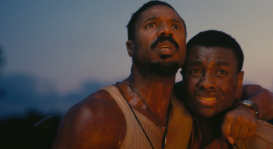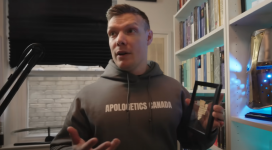The participants to the World Council of Churches (WCC) Urban Rural Mission (URM) conference in Accra, Ghana, reconfirmed their desire to work with the ‘poorest of the poor’ and the ‘most marginalized.’ The 7 day conference, which began on May 1, served as a preparation for the 2005 Conference on World Mission and Evangelism (CWME) in Athens.
"Mission begins with raising our prophetic voice to expose and condemn the capitalist-led, globalized context and its new geo-political realities that intentionally destroy human community," they wrote in a statement released May 12.
The participants acknowledged that humanity is faced with "institutionalized oppression, systematic violence, occupation and militarization, marginalization, and socio-economic deprivation and exclusion," and they reaffirmed the need to strive for a "sustainable and lasting interpersonal and inter-communal healing … that respects the voice of the victims".
Participants came from around the world, including Africa, Asia, the Middle East, Europe, North America and Central America.
The following is the full statement released by the WCC on May 12.
Mission from the Perspective of People in Struggle
Conference Communiqu
Accra, Ghana, May 1-7, 2004
We are gathered here in Accra, Ghana from all parts of the world; from Africa, Asia and the Middle East, from Europe and from North America, Latin America and the Caribbean. We have come to renew, reaffirm and strengthen our mission in the midst of people in struggle as URM networks. This comes at a time where institutionalised oppression, systematic violence, occupation and militarization, marginalization, and socio-economic deprivation and exclusion present new challenges to humanity. We note with deep concern processes of illegal occupation and oppression of sovereign lands and peoples under the guise of the ‘war on terror’, citing especially the situation in the Middle East. We are concerned that policies of hegemony, unilateralism, and neo-colonialism, along with their economic capitalist dimensions, are devastating and fragmenting many parts of the world.
We, as the global URM movement, are part of and work with grassroots communities that are committed to working among those in struggle – of whom we are part – for solidarity, for spiritual empowerment, by providing safe space for their stories of struggle to be heard, for the improving of their quality of life by developing alternatives and by actively resisting the powers of oppression and dehumanisation.
We visited Cape Coast and were reminded of the deep historical wounds of slavery that need to heal in Africa and all around the world. We also visited with churches and local communities, hearing their needs, sharing experiences, joys and hopes, and were enriched by the cultural and spiritual heritage of the people of Ghana.
Mission, for us, is the proclamation of the fullness of life. As people from churches, other faith communities, and diverse social movements around the world, as individuals and communities living the struggle, we are called to provide open space through which the voices of pain and suffering are lifted to the church and the community. In story-telling circles we have listened to the stories of communities in struggle and reflected on our social commitment to act on these stories. Through this sharing, we intend to build community in solidarity.
URM mission begins with the stories of the people, stories of liberation from bondage, stories of personal and communal cries of pain, joy and hope, of individual liberation and community emancipation. These story-telling circles were enriched by the wealth of religious and cultural traditions – a richness that is integral to the URM global family.
As we renew our hope for communities that are blessed with ‘life in abundance’, our mission begins with speaking our prophetic voice to expose and condemn the capitalist-led, globalized context and its new geo-political realities that intentionally destroy human community. We specifically examined the effects of violence and its impact on those who are violated; commodification as the catalyst for globalisation; injustice and the need for restorative justice, and the mission of URM as the spirituality of resistance to this injustice and oppression. We affirm the call ‘another world is possible’.
In the midst of this global context, we heed the call to be healing and reconciling communities, believing that truth and faithfulness of the memory of the victims must qualify this healing, and that reconciliation in the context of broken communities is a process that must be informed by justice at all levels. We are living and working in communities where killing, enslavement, and oppression are taking place daily, and it is our understanding that forcibly silenced cries of pain cannot be overshadowed by the language of pacification. Just, sustainable and lasting interpersonal and inter-communal healing is built on a spirituality of reconciliation that respects the voice of the victims. We have been inspired by words of Isaiah 58 and Luke 4, indicating that mission will lead to healing and reconciliation when it is characterized by a spiritual discipline that resists egoism and oppression and breaks the yoke of injustice.
Our URM mission is based on spiritual empowerment that is life-giving, fulfilling and is a motivating power towards individual and community emancipation from the shackles of economic servitude, political repression, cultural oppression and social marginalization.
Today, as we come from the all around the world, we reaffirm our commitment to working with the poorest of the poor and the most marginalised. We reaffirm our commitment to working with the church and through people’s movements in each of our local contexts.







